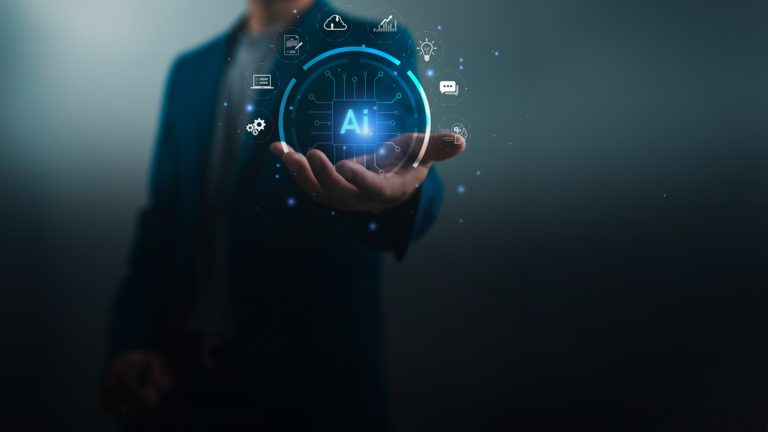Pros and Cons of Artificial Intelligence: 10 Best Ways it’s Reshaping the Future

Artificial Intelligence (AI) is a transformative force in today’s digital age. It’s fascinating how it has seamlessly integrated into our daily lives, simplifying repetitive tasks and predicting intricate patterns. As AI continues to mold various sectors, it’s essential to understand its multifaceted nature. While it offers numerous benefits, it also presents certain challenges. In this comprehensive guide, we’ll explore the pros and cons of artificial intelligence. It will shed light on its implications for AI professionals, engineers, and data scientists. As Dr. Nivash Jeevanandam, a senior researcher and a prominent voice in the AI realm, often emphasizes, understanding AI’s potential and pitfalls is crucial in today’s fast-paced tech world.
In this blog, you will learn:
- What is Artificial Intelligence?
- What are the Main Benefits of Artificial Intelligence in Various Industries?
- What are the Potential Drawbacks and Risks Associated With Implementing Artificial Intelligence Systems?
- How Does Artificial Intelligence Impact Job Roles and the Employment Market?
What is Artificial Intelligence?
Artificial intelligence embodies the imitation of human intelligence within machines. These sophisticated machines, designed meticulously, can mimic human thought processes and actions. Consequently, they can undertake tasks that traditionally demanded human intellect. The omnipresence of AI tools is undeniable. —f From the voice assistants we interact with daily to the predictive analytics that drive business strategies, AI is everywhere. It’s intriguing how they enhance efficiency and convenience in various spheres of our lives.
ALSO READ: What is Artificial Intelligence (AI)? Its Meaning, Applications, and the Future
What are the Main Benefits of Artificial Intelligence in Various Industries?
1. Error-Free Processing
Inherently fallible, humans are often susceptible to errors. But AI-driven machines distinctly stand out due to their impeccable accuracy. When these machines are adeptly programmed, they can consistently undertake tasks with unparalleled precision, thereby guaranteeing reliable results. As Dr. Jeevanandam frequently points out, the precision of AI can undeniably be a game-changer in numerous industries.
2. Helps in Repetitive Jobs
AI’s prowess in handling repetitive tasks is truly noteworthy. Unlike humans, who, unfortunately, experience fatigue after prolonged repetitive work, AI systems maintain their efficiency, ensuring consistent outcomes throughout.
3. 24/7 Availability
Another significant advantage is AI’s non-stop operational capability. Whether it’s customer support chatbots or intricate monitoring systems, AI impressively ensures continuous service, catering to users’ needs anytime, anywhere.
4. Right Decision-Making
AI’s decision-making capability is genuinely commendable. Remarkably, uninfluenced by emotions, AI can make logical decisions swiftly, optimizing operational efficiency and ensuring timely responses.
5. Digital Assistance
Digital assistants, notably powered by AI, such as Alexa or Siri, have revolutionized our daily routines. From setting reminders to curating playlists, these innovative AI tools have transformed mundane tasks into enjoyable and efficient experiences.
6. Faster Decision-Making
AI’s rapid data processing capability facilitates swift decision-making. Furthermore, this ability gives businesses a competitive advantage, making them more agile and responsive.
ALSO READ: Generative AI Vs. Predictive AI
7. Implementing AI in Risky Situations
One of the standout benefits of AI is its potential in high-risk scenarios. It can be deployed when human intervention is risky, ensuring AI ethics, safety, and efficiency. This is especially crucial in fields like deep-sea exploration or hazardous material handling.
8. New Inventions
AI is at the forefront of numerous innovative solutions. For instance, AI-driven technologies are making significant strides in early cancer detection, evidently underscoring its transformative potential in healthcare.
9. Personalized User Experiences
AI has the unique capability to analyze vast amounts of user data and provide personalized experiences. Additionally, whether it’s online shopping recommendations or personalized content on streaming platforms, AI enhances user engagement and satisfaction.
10. Scalability
One of the most compelling benefits of AI is its scalability. In fact, businesses can scale their AI solutions as they grow. The ability to scale ensures that they handle increased data and user demands without compromising efficiency or accuracy. In essence, this adaptability is crucial for businesses in today’s dynamic market landscape.
ALSO READ: Make a Career in Artificial Intelligence (AI)
What are the Pros and Cons of Artificial Intelligence Systems’ Implementation?
1. High Costs of Creation
In assessing the pros and cons of artificial intelligence, one thing is evident: Building AI-driven machines is a costly affair. The development process involves crafting intricate algorithms. This, combined with the need for cutting-edge software and hardware, can rapidly escalate costs. Consequently, for small-scale businesses with limited resources, this can pose formidable challenges. All of this makes the adoption of AI a daunting endeavor.
2. Increased Unemployment
With the advent and proliferation of AI, there’s a growing undercurrent of concerns regarding job displacement, especially when one talks about the advantages and disadvantages of AI. As machines—with their efficiency and round-the-clock operational capabilities—increasingly assume roles traditionally held by humans, the specter of unemployment becomes more pronounced. If not managed judiciously, this shift could lead to widespread societal challenges related to AI ethics. It could result in a society grappling with joblessness and enduring the associated repercussions that would follow.
3. Lacking Creativity
While AI is renowned for its analytical and predictive capabilities, it, intriguingly, falls short when it comes to creativity. Bound by their predefined algorithms, machines operate within set parameters and lack the innate creative flair that humans possess. This means that while they can process and analyze vast amounts of data, they cannot emulate the spontaneous creative nuances and insights that humans bring.
4. Lacking Improvement
In certain scenarios, AI systems might, surprisingly, face periods of stagnation. Their performance might not be up to the mark when confronted with unfamiliar data sets or unprecedented scenarios. This can lead to potential inaccuracies, making continuous monitoring and tweaking imperative to ensure optimal performance.
5. No Human Replication
Delving further into the advantages and disadvantages of AI, there’s one aspect where it still lags— replicating human judgment. AI does fall short, especially in complex scenarios that demand ethical considerations or nuanced moral discernment. While it can process information and make decisions based on data, it cannot replicate human emotions. The depth of human judgment, empathy, understanding, and the irreplaceable value of human touch cannot be imitated.
ALSO READ: The Top 4 Industries That Can Benefit from Predictive AI in India
How Does Artificial Intelligence Impact Job Roles and the Employment Market?
1. Job Displacement
In today’s rapidly evolving technological landscape, the pros and cons of artificial intelligence have never been so profound, especially concerning job displacement across a myriad of sectors. With their efficiency and precision, machines increasingly assume roles traditionally held by humans. Several conventional job profiles are under the looming threat of becoming obsolete. While enhancing operational efficiency for businesses, this shift poses challenges for the workforce. It necessitates a reevaluation of skill sets and job roles to stay eligible and relevant during the job hunt.
2. Creation of New Roles
The rise of AI has also ushered in a plethora of new job opportunities. Emerging roles such as AI specialists, data scientists, and machine learning engineers are in high demand. This underscores the dynamic nature of the job market in the pros and cons of artificial intelligence debate. Once considered niche, these roles are now pivotal in driving innovation and technological advancements in various industries.
ALSO WATCH: If Software is Eating the World, AI is its Teeth
3. Skill Upgradation
With AI’s integration into various business processes, there’s an undeniable and pressing need for skill enhancement. Professionals must proactively evolve, arming themselves with the requisite skills and knowledge to work harmoniously alongside AI-driven systems. In fact, continuous learning and adaptability of AI is paramount. This ensures that individuals can harness AI’s potential while mitigating its challenges and other pros and cons of artificial intelligence.
4. Ethical Considerations
The integration of AI into our daily lives and businesses has, intriguingly, brought various ethical considerations to the fore. AI ethics encompasses issues like data privacy, bias, and decision-making. For AI enthusiasts, these have become topics of passionate debate among experts and the general public. As AI continues to evolve, ensuring its ethical and responsible use is of utmost importance. Stakeholders, from developers to policymakers, must collaborate to create frameworks prioritizing ethical considerations, ensuring AI benefits humanity.
5. AI Singularity
The concept of AI singularity intriguingly suggests a point where AI surpasses human intelligence. This idea undeniably raises critical questions about control, implications, the pros and cons of artificial intelligence, and the evolving dynamics of human-AI interactions.
Introduced by Albert Einstein in 1915, the term “singularity” describes a point where physics breaks down in black holes. Coined by Vernor Vinge, a science fiction writer, he envisioned a future where technology goes beyond human comprehension.
AI singularity is a hypothetical scenario where machines outsmart humans. This shift could lead to technology evolving exponentially, leaving humans needing help to keep pace. The implications are vast, with experts divided on its potential outcomes. Some view it as a pathway to utopia, while others foresee potential challenges.
The rapid advancements in AI, especially with generative AI, have intensified the debate around singularity. Renowned futurist Ray Kurzweil predicts its occurrence around 2045, while others believe it might happen sooner. Sam Altman, the founder of OpenAI, has expressed concerns about AI’s uncontrollable nature.
Even though AI singularity presents opportunities and challenges, humanity must approach it with caution and understanding. As Dr. Jeevanandam aptly puts it, “The most significant risk is that humans will only realize AI singularity has arrived once robots eliminate human input from their learning processes.”
ALSO READ: Supercharge Your Professional Game With These Top 10 AI Tools
The multifaceted nature of artificial intelligence paints a picture of its transformative potential and the inherent challenges it brings. For those immersed in the world of generative AI, gaining a deep understanding of its nuances is undeniably crucial. As we stand on the cusp of an AI-driven era, it becomes essential to adeptly harness the pros and cons of artificial intelligence and its myriad benefits while simultaneously mitigating its potential risks.
This balanced approach will pave the way for a harmonious future where technology and humanity coexist, driving progress and innovation. Those keen on diving deeper into this fascinating world and equipping themselves with the requisite skills should consider enrolling in Emeritus’ artificial intelligence and machine learning courses. These courses can provide a robust foundation. They ensure you’re well-prepared to navigate the ever-evolving landscape of the pros and cons of artificial intelligence.
Write to us at content@emeritus.org





